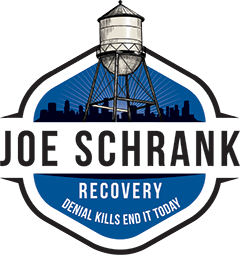 In a refreshing respite from Trumps latest gaff, the news cycle was dominated this morning by something else. Unfortunately, it’s was a sad tale of scandal involving Ryan Lochte and two other young men from the U.S. Olympic swim team. Its seems that after some kind of issue at a gas station after a night of partying ended in a fabricated story about being held at gunpoint. A convenient way to sweep poor decisions under the rug and blame bad behavior on a dire economic condition in Brazil. Clearly this was a situation that got out of hand and the intention to get out of it, went awry.
In a refreshing respite from Trumps latest gaff, the news cycle was dominated this morning by something else. Unfortunately, it’s was a sad tale of scandal involving Ryan Lochte and two other young men from the U.S. Olympic swim team. Its seems that after some kind of issue at a gas station after a night of partying ended in a fabricated story about being held at gunpoint. A convenient way to sweep poor decisions under the rug and blame bad behavior on a dire economic condition in Brazil. Clearly this was a situation that got out of hand and the intention to get out of it, went awry.
Ryan Lochte’s Pattern of Alcohol Abuse
Lochte has a history of these types of incidents. He has previously been arrested for disorderly conduct and public urination. None of this displays inherent criminality, it’s low level stuff, but as a famous athlete, his stakes are higher and scrutiny is closer, making the behavior worse. One of the diagnostics for a substance abuse issue is “consequence with a willingness to do it again”. So in other words, if it were a bad decision and a young person learned their lesson, it’s not really pathology, it’s youth. The treatment plan for being 19 is being 25 and we all have to take our lumps with that experience. That’s not what Lochte is facing.
At 32 years old, Lochte no longer gets the latitude of “young and dumb”. There is a clear pattern of things going wrong when alcohol is added to his composition. This latest debacle is part of a larger pattern where Lochte acts in ways he wouldn’t in the absence of drinking and partying. Most concerning in the unfolding story is Lochte seems to have led younger teammates then left them holding the bag. That’s the integrity of someone who is actively impaired with a drinking problem. It’s unlikely, though possible, that Lochte has organic mental illness that would lead him to these situations. It’s more likely that when he drinks, these things can happen. That is what alcoholism is. That’s the definition of it. Most are looking for volume and frequency to explain the pathology and that’s only a small data point. More relevant is what happens when someone drinks.
Finding Help for Alcoholism
At the moment the media is consumed with what happens in Rio. Once this unravels, it’s very likely that the public flogging of Lochte will begin. Does Lochte deserve this? Partially he does, he acted poorly and needs to be held accountable. He also deserves empathy, he meets criteria for alcoholism and that requires treatment and compassion. Shame only fans the flame. Perhaps Lochte should speak with teammate Michael Phelps who, after numerous consequences, went into treatment and it seems to have worked, he’s doing well and is vocal about his recovery.
Were Lochte my son or my charge here is what I would advise he say and do: “I have had numerous consequences when I have been drinking. While I am not asking for my behavior to be excused and am willing to accept the consequences, I will be entering treatment to learn more about my relationship with and reaction to alcohol”. Clear, simple, and appropriate. Give me a call, Ryan, I can help you out.


